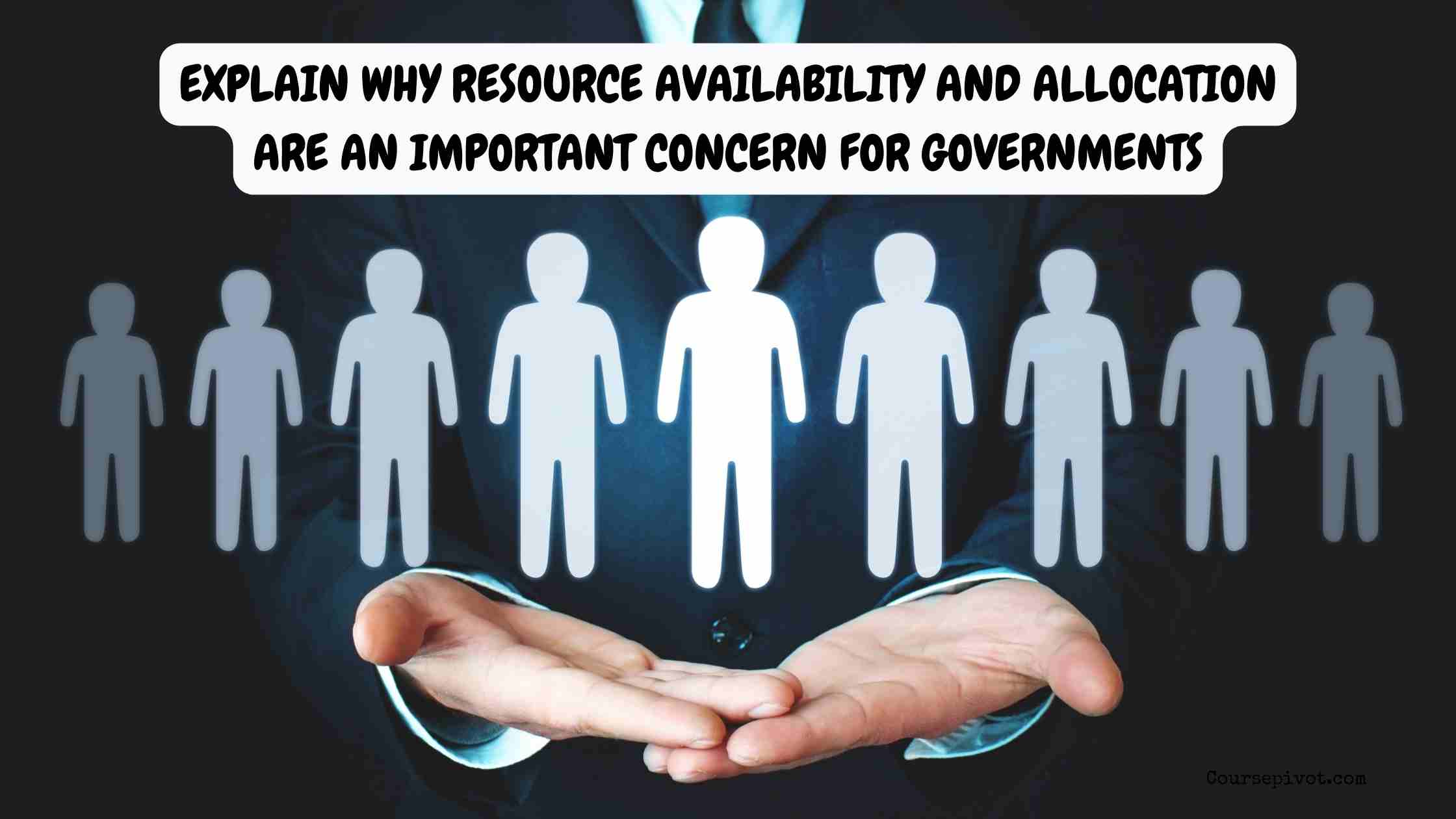
Why Resource Availability and Allocation Are Important for Governments
Governments face the daunting task of managing a nation’s resources to meet endless needs. I’ve often marveled at how leaders balance limited supplies with growing demands. Understanding why resource availability and allocation are important for governments reveals the backbone of a functioning society. In this article, I’ll explore five critical reasons why these concerns shape governance, drawn from my own observations and research. These insights highlight the stakes of resource management. Let’s dive into why resource availability and allocation matter so much to governments.
Table of Contents
Ever wondered how governments decide who gets what? It’s a high-stakes puzzle with real consequences. Ready to uncover five reasons why resource availability and allocation are vital?
Resources are the lifeblood of any nation. I’ve seen how shortages or mismanagement can spark crises. Let’s explore why governments prioritize resource availability and allocation.
1. Ensures Economic Stability
Resource availability drives economic health, while allocation decides who benefits. This is a core reason why resource availability and allocation are important for governments. I’ve noticed economies falter when resources run dry.
- Fuel for growth. Oil, water, and minerals power industries.
- Job creation. Proper allocation supports businesses and workers.
- Price control. Scarcity can spike costs, hurting consumers.
Why does this stabilize economies? Resources keep markets running smoothly. Smart allocation prevents shortages and inflation.
Read our blog on Describe What Sanctions Are and Why They Are Needed
2. Supports Public Services
Governments rely on resources to fund schools, hospitals, and roads. This is a key reason resource availability and allocation matter. I’ve seen communities struggle when funds are misdirected.
- Healthcare needs. Medical supplies and staff require steady budgets.
- Education access. Schools need books, teachers, and buildings.
- Infrastructure upkeep. Roads and bridges demand constant resources.
Why prioritize services? Allocation ensures citizens’ basic needs are met. It’s the foundation of a healthy society.
3. Promotes Social Equity
Fair resource distribution reduces inequality. This is a vital reason why governments focus on resource availability and allocation. I’ve observed tensions rise when resources favor the few.
- Access for all. Water, food, and energy should reach everyone.
- Rural vs. urban. Allocation balances city and countryside needs.
- Marginalized groups. Fair policies uplift disadvantaged communities.
Why does equity matter? Uneven allocation breeds unrest. Equitable distribution fosters trust and unity.
4. Addresses Environmental Sustainability
Resource availability depends on protecting nature. This is a major reason why resource allocation is critical for governments. I’ve been struck by how overuse harms ecosystems.
- Renewable energy. Allocating funds to solar or wind preserves resources.
- Water conservation. Smart policies prevent shortages.
- Forest protection. Sustainable logging maintains biodiversity.
Why focus on sustainability? Overuse depletes resources for future generations. Careful allocation ensures long-term survival.
5. Enhances National Security
Resources like energy and food underpin a nation’s strength. This is a crucial reason why resource availability and allocation are important. I’ve read about conflicts sparked by resource scarcity.
- Energy independence. Secure oil or gas reduces foreign reliance.
- Food security. Allocation prevents hunger during crises.
- Defense needs. Military requires steady supplies and funding.
Why link resources to security? Scarcity can weaken a nation. Strategic allocation keeps countries stable and safe.
Read our blog on Describe How Zoning Laws Can Protect and Benefit Homeowners
What’s Next for You
Grasping why resource availability and allocation are important for governments is like seeing the gears of a nation turn. I’ve been amazed by how these decisions ripple through every aspect of life. These five reasons—economic stability, public services, social equity, sustainability, and security—show why governments obsess over resources. Every choice shapes prosperity or struggle. Will you ignore these issues, or engage with their impact?
Here’s how to stay informed:
- Follow policy news. Track how governments manage resources.
- Support sustainability. Advocate for green policies locally.
- Vote wisely. Choose leaders who prioritize fair allocation.
Resource management isn’t abstract—it’s personal. Why resource availability and allocation matter affects your daily life. Start paying attention today to shape a better tomorrow.
Cite this article
You can copy and paste your preferred citation format below.
Martin, L. & Arquette, E.. (2025, May 30). Why Resource Availability and Allocation Are Important for Governments. Coursepivot.com. https://coursepivot.com/blog/explain-why-resource-availability-and-allocation-are-an-important-concern-for-governments/



